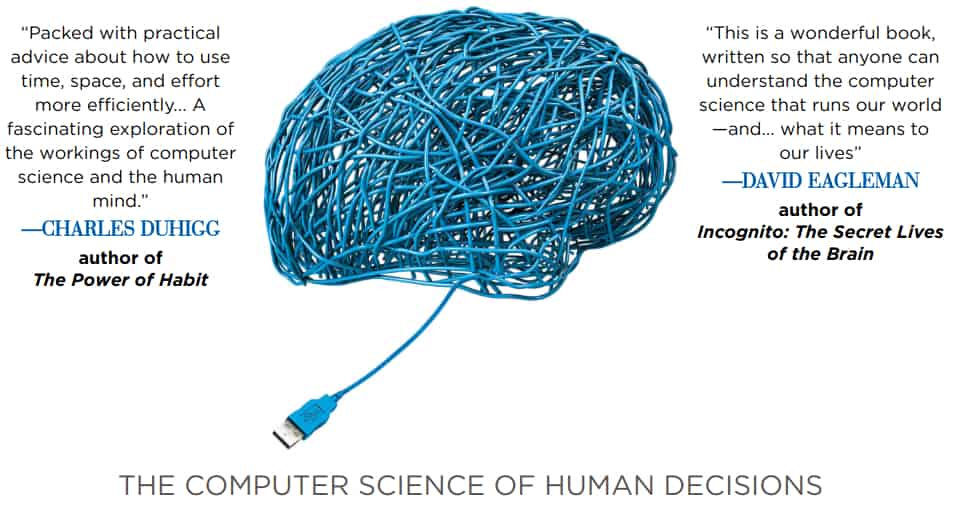
A few weeks ago I started reading Algorithms to Live By: The Computer Science of Human Decisions and been fascinated by it ever since:
What should we do, or leave undone, in a day or a lifetime? How much messiness should we accept? What balance of the new and familiar is the most fulfilling? These may seem like uniquely human quandaries, but they are not. Computers, like us, confront limited space and time, so computer scientists have been grappling with similar problems for decades. And the solutions they’ve found have much to teach us.
In a dazzlingly interdisciplinary work, Brian Christian and Tom Griffiths show how algorithms developed for computers also untangle very human questions. They explain how to have better hunches and when to leave things to chance, how to deal with overwhelming choices and how best to connect with others. From finding a spouse to finding a parking spot, from organizing one’s inbox to peering into the future, Algorithms to Live By transforms the wisdom of computer science into strategies for human living.
I’ll try and give you a little taste of the book - which I’m still reading (more precisely, listening), so you’ll know what you’re getting into.
Anyway, Chapter II talks about the “when to stop” (Optimal Stopping) dilemma:
- Should I keep searching for an apartment?
- Should I keep dating, or settle down with my current partner?
- Should I keep searching for a better hire, or take the current candidate?
- Should I keep searching for a better parking stop?
- and more …
These problems aren’t theoretical at all, and I kept “inventing” an algorithm to solve them. I never really thought that someone, somewhere, spent considarable time looking into these and finding the best algorithm to tackle them.
Each one of the 13 chapters (except the intro) uncovers a new algorithm, walks through day to day problems and explains how one can implement it to tackle problems in a fascinating, optimal way.
The book talks about the following subjects:
- Optimal Stopping: When to Stop Looking
- Explore, Exploit: The Latest vs The Greatest
- Sorting: Making Order
- Caching: Forget About It
- Scheduling: First Thing is First
- Bayes’ Rule
- Overfitting: When to Think Less
- Relaxation: Let it Slide
- Randomness: When to Live it to Chance
- Networking: How We Connect
- Game Theory: The Minds of Others
- Computational Kindness
By the way, audible offers a 30 day trial which you can use to buy this book. I was a bit concered that it’ll be hard to narrate properly, but after spending many hours listening to it, I can honestly say that the book is well narrated and very fun to listen too!
Are you listening to a good tech book too? sharing is caring :)